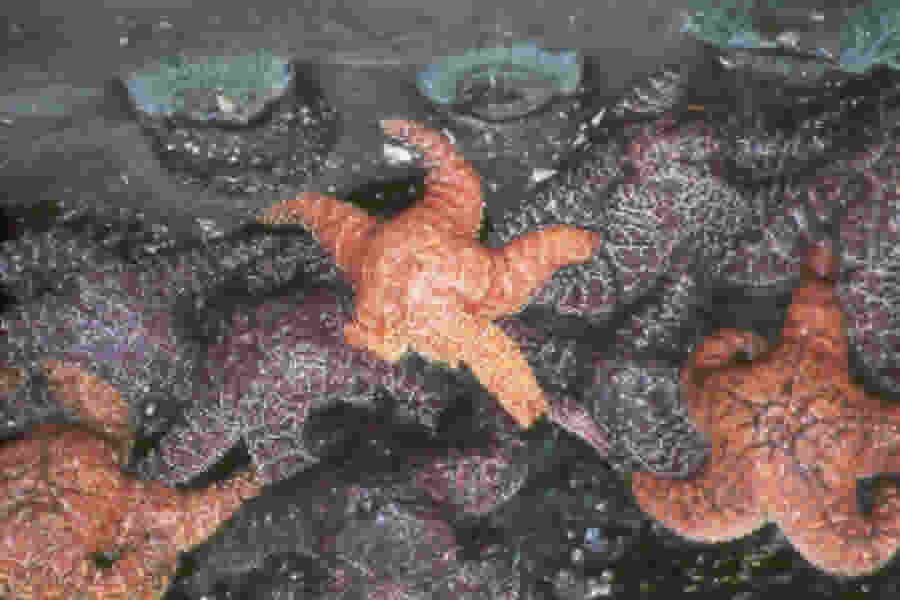
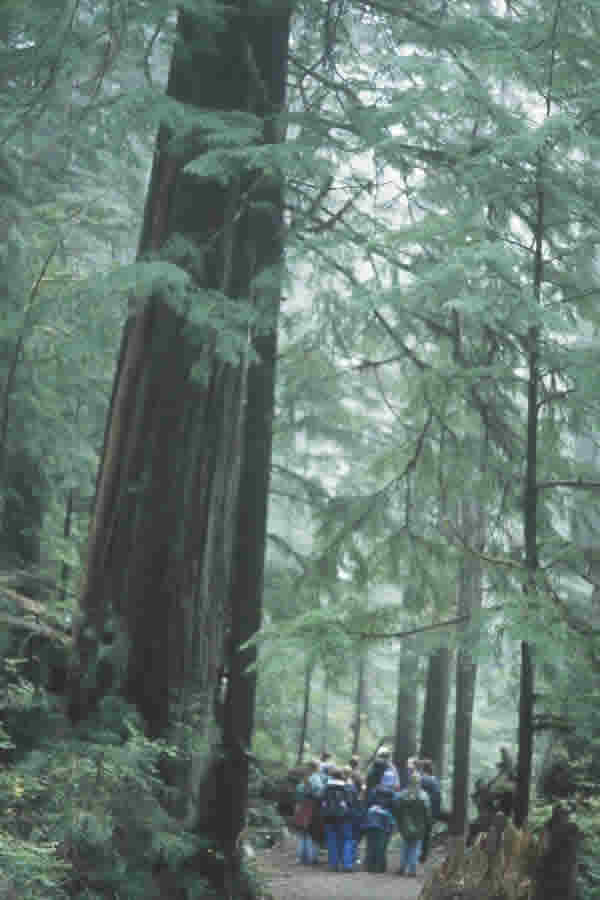
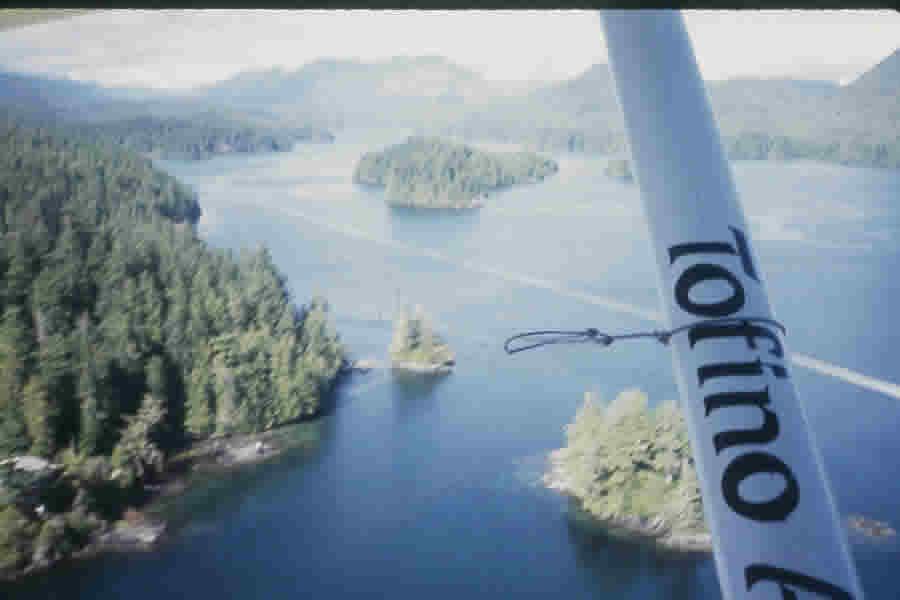
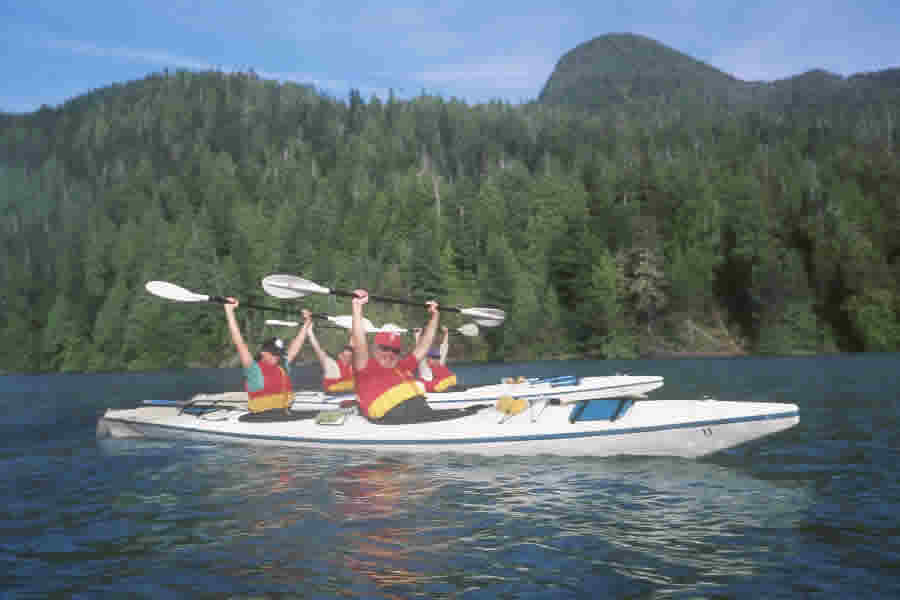
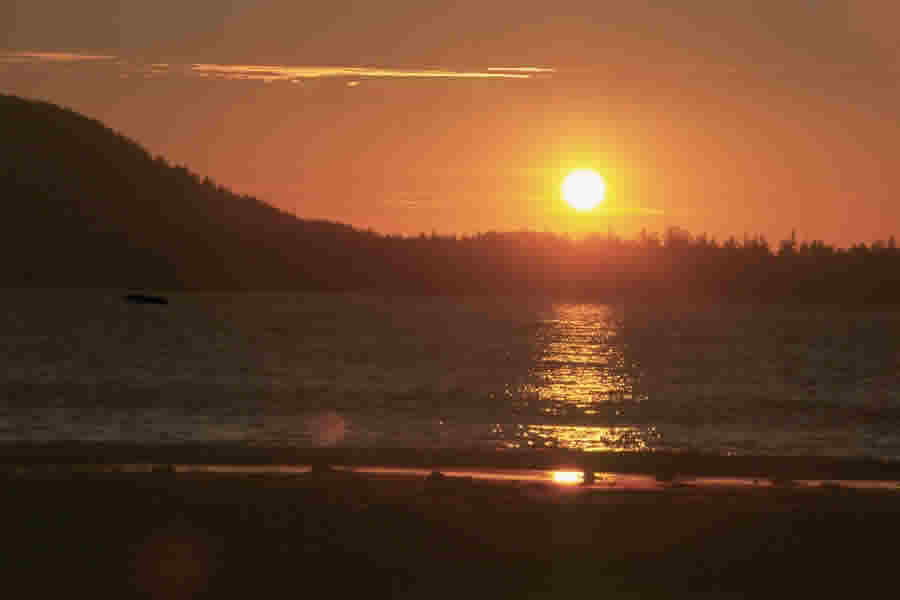
"Changing Rainforests: An Inquiry-based Exploration of Environmental Change in the USA and Canadian Temperate Rainforests"
Tuesday, July 22 - Wednesday, July 30, 2003
Participant Fee: A comprehensive fee of $900.
The Environmental Learning Institute provides course transport from the Seattle rendezvous to the Clayoquot Sound Biosphere Reserve, Canada, on-course travel, food, cooking equipment, lodging, protected area fees, course reader and all scientific and research equipment.
†This fee does not include airfare from the participantís home to and from Seattle, personal clothing, personal equipment expenses, personal expenses or optional travel.
Rendezvous: 2 PM, Tuesday, July 22, SEATAC (Seattle) airport.
Dropoff: 9 AM, Wednesday, July 30 SEATAC (Seattle) airport. Therefore you can book flights at 11 AM..
Credits: 5 graduate-level credits for recertification purposes available through Colorado School of Mines (additional $160 fee).
1. Facilitator Contact Information:
David Scott Silverberg, Ph.D.,
520 731-3374, silverberg@alum.mit.edu
Environmental Learning Institute
5710 South Freeman Road #4
Tucson, AZ 85747
Steven and Karen Charleson, Hooksum Outdoor School
Sennen Charleson, Victoria, B.C.
Dennis Morgan, M.Sc., Director, Bamfield Community Forest
James Cole, M.Ed., 212 663-7501, JimboCole@aol.com
Crossroads School
234 West 109th St.
New York, NY
10025
2. Brief Description:
The Clayoquot Sound Biosphere Reserve is composed of the largest intact virgin rainforest in southern British Columbia, inland seaways, fiords and an incredibly rich marine environment. In this TORCH we will explore through authentic inquiry-based learning-research activities the incredible temperate rain forests of British Columbia's Vancouver Island's "Wild West Coast". Towering cedar trees, several salmon species, resident grey and orca whales typify the region. We will live with the Hesquiaht First Nations and Anglo-Canadian communities whose lives are fundamentally dependent on the sustainable management of the region's still intact watershed. After a camping study tour to Clayoquot Sound, we take a 2 hour boat ride to Hesquiaht Harbor. Our home base will be at a Hesquiaht First Nations Traditional Longhouse. The group will study coastal temperate rainforest ecosystems in the west coast of Vancouver Island, Canada through hands-on explorations guided by local area experts. (Dr. Silverberg co-founded and directed the Boston University Affiliated School for Field Studies in Bamfield, B.C.) The workshop will take place in a 9-day session in July of 2003.
Teachers will:
· Learn about the climate, flora, fauna, and geology of rainforest
ecosystems.
· Become familiar with global and local threats to these ecosystems.
· Learn the Grinnel system of field journaling.
· Learn a variety of field research techniques that can be applied
in the classroom as well as in the field with their students.
· Experience inquiry-based learning first-hand and develop inquiry-based
lessons for their own classrooms.
· Be encouraged to establish long-term professional connections
with each other and local experts.
· Participate in professional forums on inquiry-based science,
alternative assessment, and constructivist pedagogy in the science classroom.
· Contribute to the creation of a world wide web site that will
illustrate the philosophy, pedagogy and experiences of the workshop.
3. Site description:
oThe 10-day institute will be spent traveling to and from and staying
in the Clayoquot Sound Biosphere Reserve, Vancouver Island, British Columbia,
Canada.
oThe group will fly to Seattle, Washington and then take a study tour
enroute to the Clayoquot Sound Biosphere Reserve on Vancouver Island in
Canada
oDays 3-8 the group will stay in a remote field station on Nuu-Chah-Nulth
First Nations Territory in primary temperate rainforest.
oDay 9-10 the group will drive back to Seattle and then fly home.
4. Levels of teacher-participants:
Participants may be pre-service or in-service teachers of secondary level life science, integrated science, biology, geology or environmental science.
5. Structure of workshop:
From August 21 - 30, we will travel north along the Washington State Coast
and then cross by ferry to Vancouver Island B.C., then driving into the
Clayoquat Sound Biosphere Reserve. For those eight days, participants
will attend content lectures and guided hikes, undertake field studies
in both coastal and forest ecosystems. Our days are filled with field
work, our evenings include lively text-based discussions of inquiry-based
learning, expeditionary learning, team development models, global environmental
change.
6. Content Knowledge Topics: Natural Ecosystems and Ecological Concepts
This course provides an overview of the British Columbia coastal rainforest ecosystems: what they are; how they work; and how they evolve and adapt to change. Ecosystem structure and function, as well as ecosystem development and dynamic equilibrium are integrated into a central theme of sustainability from a local and global perspective. Particular emphasis will be given to the ecology of british Columbia's Vancouver island coast , the Clayoquat Sound Biosphere Reserve. Biosphere, lithosphere, atmosphere interactions and exchanges within the coastal zone and tropical biomes are introduced as related to issues of local and global environmental change. The philosophy, pedagogy and learning activities of the course employ a standards- and inquiry-based approach.
Lectures include:
Environmental History of Canada
Experimental Design and Data Interpretation
Watersheds and Coastal Environmental Change
Causes and Consequences of Biodiversity
Geologic and Physical Geographic Development of British Columbia and Vancouver Island, Canada
Corridors and Global Climate Change
Canada and Global Environmental Change
Habitat Fragmentation and Degradation
How Coastal Temperate Rainforests Work
Canada's Protected Areas and Communities
7. Curriculum materials:
Each participant will also receive a binder in which to put all course
handouts. Included will be readings on global change and current environmental
issues in temperate forest and coastal ecosystems, both global and local.
Maps and field guides for each field site as well as descriptions of common
field techniques and their applications will also be included. In addition,
teachers will receive handouts regarding pedagogy, ways in which inquiry
based learning may be implemented in the classroom, alternative assessment
(rubrics, portfolios, exhibitions), and constructivism in science education.
8. Field Equipment: Our field lab includes several notebook computers, TI-89 graphing calculators, a full set of Vernier calculator and computer-based laboratory probes and standard geological and biological field equipment. A digital projector, compasses, barometers, digital cameras, mini-DV camcorders, 35 mm SLR, microscopes, GPS units.
9. Food and Lodging: We will be cooking in field stations and also occassionally eating in simple local restaurants. Participants will be asked to help the camp manager with cooking and cleaning chores in rotation. We will be camping in tents and using sleeping bags. You need to bring your own sleeping bag. Two person tents are provided, though you are welcome to bring your own if you prefer.
10. Physical Fitness Requirements: The British Columbia Rainforest TORCH course involves hiking in the wet temperate rainforest, dayhiking with a 20 pound daypack, hiking on trails and off-trails, traveling in a van for several hours on sometimes curvy coastal and mountain roads, †traveling in a motorboat on a choppy water surface.† Participants will sleep in tents, in sleeping bags with sleeping pads on the ground.†